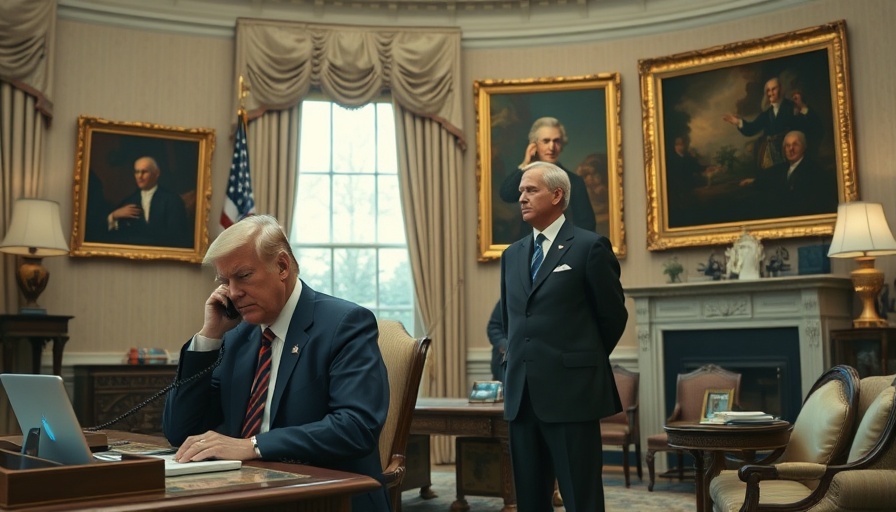
The Echoes of Iraq: Lessons Unlearned?
As President Trump weighs military action against Iran, echoes from the past resurface with alarming clarity. In March 2003, amidst hopes of a quick victory in Iraq, President George W. Bush declared a 'mission accomplished' after the fall of Baghdad. However, the reality quickly morphed into a protracted conflict with dire consequences, claiming over 4,000 American lives and leaving a complex legacy of miscalculation.
Modern Comparisons: Trump and the Iran Dilemma
Fast forward to 2025, and we find ourselves in a similar moment of uncertainty. President Trump, who campaigned on a platform against enduring conflicts dubbed 'forever wars,' now faces the potential of deploying military force in Iran. The backdrop is markedly different; there are not hundreds of thousands of troops stationed in the region as there were during the Iraq War. Yet, the prevailing feelings of dread and worry echo that of two decades ago.
Rethinking War: Insights from Experts
Vali R. Nasr, a noted Iranian-American professor at Johns Hopkins, reflects on this parallel, stating, "Every single assumption [about Iraq] proved wrong." This sentiment is pivotal as it urges both policymakers and citizens to scrutinize the motivations behind military action in Iran. The promise of a quick, decisive victory—as envisioned by Trump’s allies—could lead the nation into yet another quagmire, despite assertions that it would be a temporary, one-off strike.
Analyzing the Political Landscape
Trump’s administration is rife with internal debates about the veracity of intelligence concerning Iran’s intentions. Comparisons with the Bush administration’s reliance on shaky intelligence to justify the Iraq invasion bring to light crucial questions of accountability. Will history repeat itself, leading to misjudgments that could further destabilize the Middle East?
A Call for Caution and Reflection
As discussions of military action unfold, citizens must engage critically with the narrative presented by political leaders. Are we, once again, being swept into actions fueled by political rhetoric rather than solid evidence? The stakes are now higher, with Iranian military capabilities having advanced since 2003, and any military engagement could spark a far-reaching regional conflict.
Conclusion: Moving Forward
As the U.S. navigates its foreign policy options, understanding the legacies of past conflicts like Iraq is crucial. Engaging in thoughtful discourse about military intervention in Iran is not just a political responsibility but a civic one. Families, parents, and individuals across the globe must advocate for accountability and clearer communications regarding the ramifications of military actions.
 Add Row
Add Row  Add
Add 




 Add Row
Add Row  Add
Add 

Write A Comment